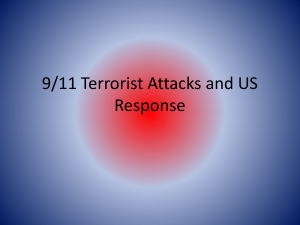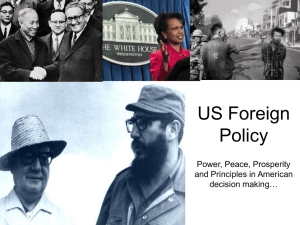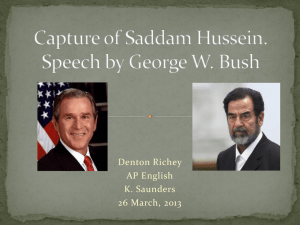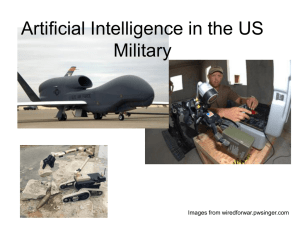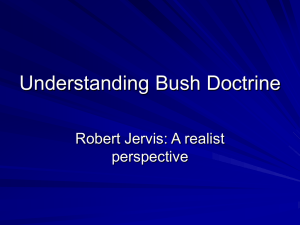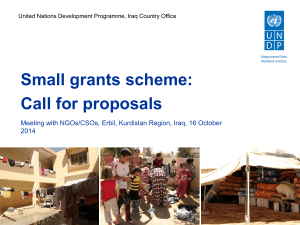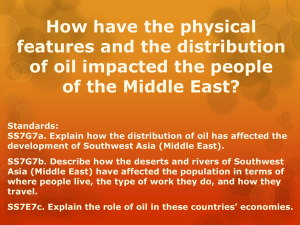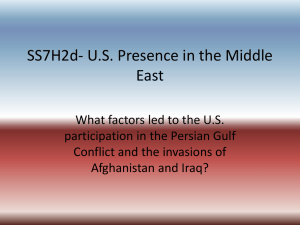Iraq 1990 readings
advertisement
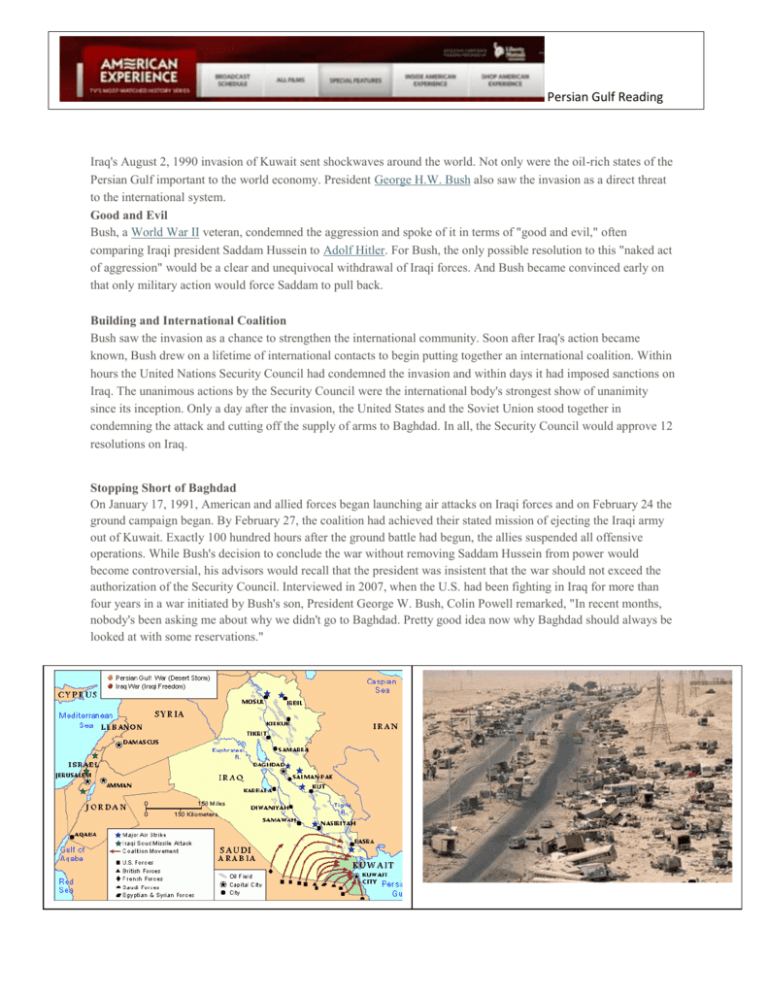
Persian Gulf Reading Iraq's August 2, 1990 invasion of Kuwait sent shockwaves around the world. Not only were the oil-rich states of the Persian Gulf important to the world economy. President George H.W. Bush also saw the invasion as a direct threat to the international system. Good and Evil Bush, a World War II veteran, condemned the aggression and spoke of it in terms of "good and evil," often comparing Iraqi president Saddam Hussein to Adolf Hitler. For Bush, the only possible resolution to this "naked act of aggression" would be a clear and unequivocal withdrawal of Iraqi forces. And Bush became convinced early on that only military action would force Saddam to pull back. Building and International Coalition Bush saw the invasion as a chance to strengthen the international community. Soon after Iraq's action became known, Bush drew on a lifetime of international contacts to begin putting together an international coalition. Within hours the United Nations Security Council had condemned the invasion and within days it had imposed sanctions on Iraq. The unanimous actions by the Security Council were the international body's strongest show of unanimity since its inception. Only a day after the invasion, the United States and the Soviet Union stood together in condemning the attack and cutting off the supply of arms to Baghdad. In all, the Security Council would approve 12 resolutions on Iraq. Stopping Short of Baghdad On January 17, 1991, American and allied forces began launching air attacks on Iraqi forces and on February 24 the ground campaign began. By February 27, the coalition had achieved their stated mission of ejecting the Iraqi army out of Kuwait. Exactly 100 hundred hours after the ground battle had begun, the allies suspended all offensive operations. While Bush's decision to conclude the war without removing Saddam Hussein from power would become controversial, his advisors would recall that the president was insistent that the war should not exceed the authorization of the Security Council. Interviewed in 2007, when the U.S. had been fighting in Iraq for more than four years in a war initiated by Bush's son, President George W. Bush, Colin Powell remarked, "In recent months, nobody's been asking me about why we didn't go to Baghdad. Pretty good idea now why Baghdad should always be looked at with some reservations." Do Now: 1. What impact could your event have on US foreign policy? 2. How do you think Bin Laden could exploit the situation outlined in your article? Scenarios-Develop a Plan What should the UN do? What should the US do? What should Bin Laden do? Your Answer What should the UN do to Iraq after the Persian Gulf War? Connection to Bin Laden Fatwah Oslo Accords Readings The Oslo Accords, which Israel and Palestine signed in 1993, were supposed to end the decades-old fight between them. Hesitation on both sides, however, derailed the process, leaving the United States and other entities once again trying to mediate an end to the Middle East conflict. While Norway played a key role in secret negotiations that led to the accords, U.S. President Bill Clinton presided over final, open negotiations. Israeli Prime Minister Yitzhak Rabin and Palestinian Liberation Organization (PLO) Chairman Yasser Arafat signed the agreements on the White House lawn. An iconic photo shows Clinton congratulating the two after the signing. Background The Jewish state of Israel and Palestinians have been at odds since the creation of Israel in 1948. In major wars in 1967 and 1973, Israel occupied more Palestinian areas including: The Gaza Strip, near the Israeli border with Egypt The West Bank (of the Jordan River), which Israel insists is necessary for its own security The Golan Heights near Israel's border with Syria The Sinai Penisula, which Israel later returned to Egypt Secret Meetings in Oslo Arafat's new opinion on Israel, Egypt's treaty of peace with Israel in 1979, and Arab cooperation with the United States in defeating Iraq in the Persian Gulf War of 1991, opened new doors to possible Israeli-Palestinian peace. Israeli Prime Minister Rabin, elected in 1992, also wanted to explore new avenues of peace. He knew, however, that direct talks with the PLO would be politically divisive. Norway offered to provide a place where Israeli and Palestinian diplomats could hold secret meetings. In a secluded, wooded area near Oslo, diplomats gathered in 1992. They held 14 secret meetings. Since the diplomats all stayed under the same roof and frequently took walks together in secured areas of the woods, many other unofficial meetings also occurred. The negotiators emerged from the Oslo woods with a "Declaration of Principles", or the Oslo Accords. They included: Israel recognized the PLO as Palestine's official representative The PLO renounced the use of violence The PLO recognized Israel's right to exist Both agreed to Palestinian self-rule in Gaza and the Jericho area of the West Bank by 2000 A five-year interim period would facilitate further Israeli withdrawals from other, unspecified areas of the West Bank. Do Now: 1. What impact could your event have on US foreign policy? 2. How do you think Bin Laden could exploit the situation outlined in your article? Scenarios-Develop a Plan What should the UN do? What should the US do? What should Bin Laden do? Your Answer How do you think Bin Laden and like minded people think about the Oslo Accords? Connection to Bin Laden Fatwah Iraq Sanctions Reading After the Gulf War, the United Nations imposed strict economic sanctions on Iraq that critics charge have led to the deaths of more than a million people -- the majority of them children. Saddam Hussein claims the deaths are in excess of one and a half million. Recent reports in leading newspapers and research studies in medical journals now suggest those numbers may be exaggerated. Still, a heated debate continues over the impact of the sanctions and over whether the United Nations and in particular the United States are responsible or whether Saddam himself has blocked humanitarian aid to further his own propaganda war. As early as 1991, the U.N. Security Council acknowledged that sanctions were causing the Iraqi people undeniable suffering and proposed an oil-for-food humanitarian program to alleviate malnutrition and disease. The plan allowed Iraq limited sales of oil with revenues to be placed in a U.N.-controlled account for the purchase of approved food and medical supplies. Saddam rejected this program as an infringement of his sovereignty. After years of negotiations, Baghdad finally agreed to the program in 1996 with the first deliveries of aid arriving in 1997. Each year since then the Security Council has increased the Oil-for-Food program, and according to Secretary General Kofi Annan, Iraq now has sufficient resources to alleviate life-threatening disease and hunger. What are the sanctions? The sanctions were imposed when then-Iraqi President Saddam Hussein's army invaded Kuwait in August 1990. They forbid free trade, financial dealings, flights and the import of any goods but food and medicine. After the 1991 Gulf War, the Security Council adopted a 3,900 word complex cease-fire resolution, number 687, which, in effect, dictated Iraq's surrender. The measure set up the world's most intrusive inspection system to rid Iraq of ballistic missiles and nuclear, chemical and biological weapons as a condition for lifting the oil embargo.At least 16 resolutions, most of them drafted or sponsored by the United States and Britain, expanded on these principles. What is the oil-for-food programme? To ease the impact of the sanctions on ordinary Iraqis, the Security Council agreed on a programme that allowed Iraq to sell oil to buy basic goods.The programme, first instituted in late 1996, eventually excluded only specific goods that could be used for military purposes. The multi-billion dollar oil revenues went into a UN escrow fund out of which the United Nations paid suppliers for the goods. Iraq chose suppliers for goods as well as buyers of oil. Did all the money go for civilian goods? Some 25 per cent of oil revenues go into a fund for Kuwaitis, individuals and foreign firms affected by Iraq's 1990 invasion and occupation of the emirate. In addition, salaries of UN staff administering the programme are paid out of the oil revenues, including the arms inspectors. Up to $2 billion a year, according to US estimates, went to Saddam Hussein for oil smuggled to neighboring nations but the bulk of the revenues were deposited in the UN account by oil buyers. Do Now: 1. What impact could your event have on US foreign policy? 2. How do you think Bin Laden could exploit the situation outlined in your article? Scenarios-Develop a Plan What should the UN do? What should the US do? What should Bin Laden do? Your Answer What should the UN do to Iraq after the Persian Gulf War? Do you agree or disagree with UN sanctions on Iraq? Connection to Bin Laden Fatwah

